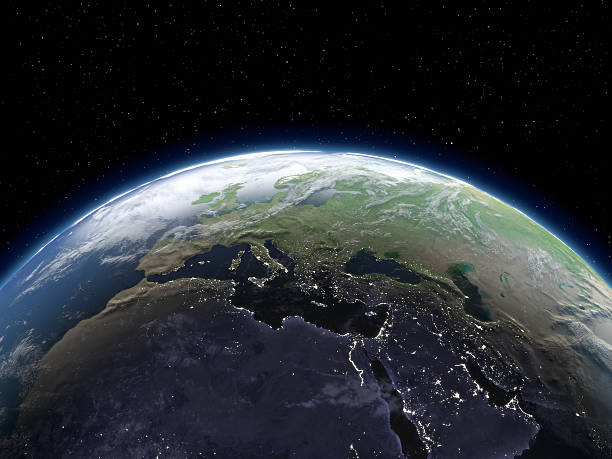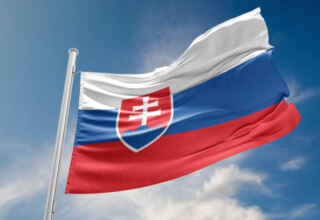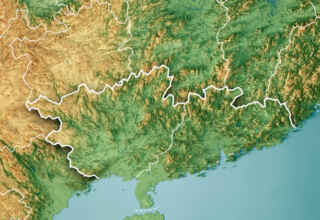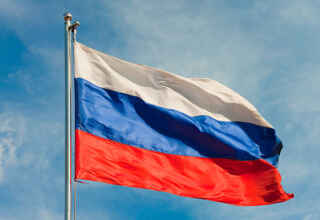
Europe and Africa depend on one another to deliver an effective and long-term response to global and shared issues such as climate change, peace and security, and economic growth, all of which affect us all. The European Union-African collaboration, founded on discussion and multilateralism, is solution-oriented and forward looking. Europe and Africa are both players in a multilateral international system founded on the rule of law.
The European Union is Africa’s first partner at all levels, including trade, investment, and development. Europe is and will continue to be a long-term partner for Africa, as seen by the renewal of a 1975 pact with African, Caribbean, and Pacific countries. The EU is Africa’s most significant trade partner, according to IMF data, the EU accounts for 26% of all imports into African nations in terms of value, followed by China (16%) and intra-African imports (15%) on average between 2018 and 2020. Other partners, such as the United States (5 %) and the United Kingdom (2 %), are important but far less substantial providers of imports to African countries.
Africa’s export destinations are closely related to its import destinations in terms of economic relevance. Between 2018 and 2020, the EU is Africa’s most significant export destination, accounting for 26% of total African export value, followed by intra-African exports (18%) and China (15%). Smaller export destinations include India (6%), the United States (5%), Turkey, Brazil, the United Kingdom, Japan, and Russia (all less than 3%). The EU is also focusing on investments in Africa mostly in mining sectors in countries like Morocco, Tunisia, South Africa, and Egypt.
However, all these bilateral agreements between EU and Africa include a chance in negotiating services in the future but this has been hard to be put in practice, the two need to revisit their approaches to cooperation in order to enhance their economic impact. The EU and Africa should work together to improve statistics on their services trade, utilizing EU experience and collaborating with key African agencies such as the United Nations Economic Commission for Africa. Reliable statistics on the contribution of services to added value in all sectors, comparable across nations, would assist governments in developing better industrialisation and trade plans.
Enhanced service trade with Africa would help the EU as well. Many European nations are net service exporters, and European corporations aim to increase their presence in Africa in areas that now face substantial trade and FDI restrictions, such as commercial banking. Addressing Africa’s shortages in services, such as transportation, logistics, and distribution, might assist European corporations in diversifying their trading strategies, making them more competitive and solid.
In terms of peace and security, despite the global crises, the EU has continued to fund African peace support activities, particularly those conducted by the African Union. Once again, the pledges established at the previous EU-AU summit are being translated into tangible measures. The European Peace Facility (EPF) has earmarked €600 million to these missions between 2022 and 2024, in addition to support from other development instruments. The EU has provided €2.7 billion in support to the African Union Transition Mission in Somalia (AMISOM/ATMIS) since 2007. The eleven training and assistance missions around the continent demonstrate the EU’s continued support for African partners’ peace and security objective.
While some want to divide, the EU’s collaboration with Africa aims to deliver results and promote cooperation. Some governments’ pledges have proven to be ineffective over time. In contrast, the EU and its Member States have consistently invested in Africa and provided duty-free access for African goods to the EU.
The EU-Africa trade cooperation is critical for developing a comprehensive, forward-thinking, and mutually beneficial relationship. Services are critical to diversifying the EU-Africa economic relationship, which is too reliant on commodities and basic products. Domestic rules may provide barriers to service commerce, making cross-border regulatory harmonization critical. The extent to which Africa and the EU adopt comparable policy approaches on service regulation will impact the expansion of bilateral commercial agreements. Services trade discussions are substantially more than simply reducing trade barriers, they also include developing shared regulatory norms and processes between nations.
By The European Institute for International Law and International Relations
References
Luke, D. (2023, May 26). Muddled priorities continue to plague EU-Africa Trade policy. EUROPP. https://blogs.lse.ac.uk/europpblog/2023/05/26/muddled-priorities-continue-to-plague-eu-africa-trade-policy/
Lejarraga, I. (2023, March 21). Tricks of the trade: Strengthening EU-African Cooperation on trade in Services. ECFR. https://ecfr.eu/publication/tricks-of-the-trade-strengthening-eu-african-cooperation-on-trade-in-services/#eu-africa-trade-in-services
Actions speak louder than words – illustrations of the Europe – africa partnership. EEAS. (n.d.). https://www.eeas.europa.eu/delegations/senegal/actions-speak-louder-words-illustrations-europe-africa-partnership_en












